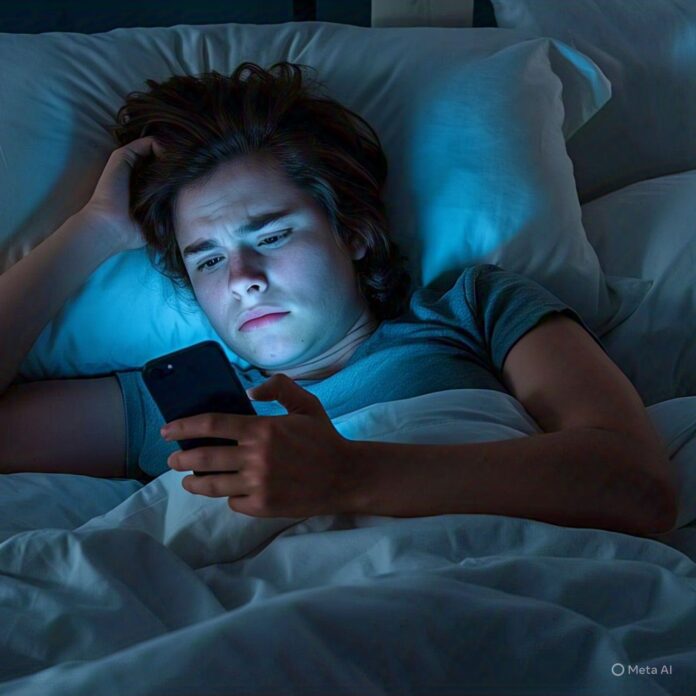Why Your Phone Might Be Messing With Your Sleep (And What To Do About It)
Hey friend,
Let’s talk about something we’re ALL guilty of: staying up late, scrolling through our phones. You know the drill—you tell yourself “just five more minutes” and before you know it, it’s almost midnight…again. The next day, you’re groggy, yawning, and maybe a bit grumpy. But why does this keep happening?
Let me let you in on a little secret: it’s not just because you’re staying up late. It’s also about what you’re staring at before bed—your phone, your tablet, your laptop, even your TV. All of these gadgets have screens that give off a special kind of light called blue light, and it’s kind of a big deal for your sleep and focus.
So, What’s the Deal With Blue Light?
Blue light is just one of the many colors of light that make up sunlight. During the day, blue light is actually helpful—it boosts attention, reaction time, and even your mood. But here’s the catch: when you get a ton of blue light at night (from those bright screens), your brain gets confused.
How? Our brains have this built-in clock (called the circadian rhythm) that tells us when it’s time to be awake and when it’s time to sleep. Blue light basically tricks your brain into thinking it’s still daytime, so it stops making melatonin—the hormone that helps you feel sleepy. Less melatonin means you have a harder time falling asleep and staying asleep.
Real Science, Really Simple
Researchers have found that blue light does a better job at messing with your melatonin than other types of light. Even just a half-hour of late-night screen time can delay your sleep by messing with your body’s clock. That’s why you wake up feeling like you hardly rested at all.
And poor sleep doesn’t just make you tired. It messes with your memory, focus, and even your mood. So, those foggy mornings and bad days after late-night scrolling? Blame blue light (and, okay, maybe a little bit of TikTok).
How to Outsmart Blue Light
The good news? You don’t have to give up your phone completely. Try these easy tips:
1. Turn On Night Mode
Most phones and computers have a “Night Shift” or “Night Light” mode that swaps out that harsh blue for warmer, yellower light after sunset. It’s not perfect, but it helps!
2. Try Blue Light Glasses
These special glasses filter out blue light so you can scroll, text, or work late and still keep your sleep game strong. They’re not magic, but lots of people swear by them.

3. Set a “No Screens Before Bed” Rule
Aim to put your phone down at least 30-60 minutes before you plan to sleep. Read a book, doodle, listen to music—anything that doesn’t shine a bright light in your face.
4. Dim the Brightness
Turn down the brightness on your phone or laptop in the evening. And if you have to check your phone, hold it farther away—distance actually reduces how much blue light gets to your eyes.
5. Keep Devices Out of the Bedroom
Okay, this is a tough one, but even charging your phone across the room can make a difference. Out of sight, out of mind (and out of bedtime).

Try This Tonight!
You don’t have to change everything at once. Tonight, try turning on Night Mode and putting your phone down 30 minutes before bed. See if you fall asleep quicker or wake up feeling a little more refreshed. Even small changes can add up!
Remember, better sleep means better days. Take a tiny step tonight, and thank yourself tomorrow morning.
Sweet dreams!
